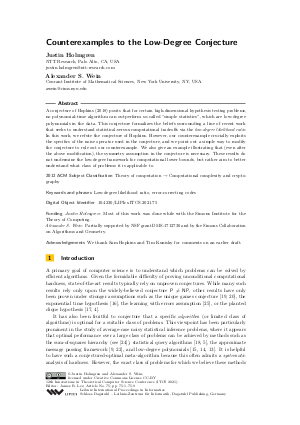LIPIcs.ITCS.2021.75.pdf
- Filesize: 402 kB
- 9 pages

 Creative Commons Attribution 3.0 Unported license
Creative Commons Attribution 3.0 Unported license
















Feedback for Dagstuhl Publishing